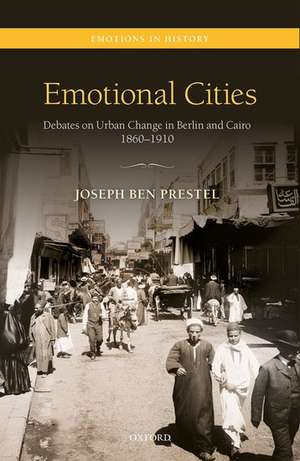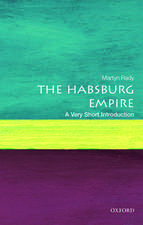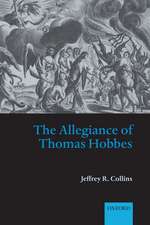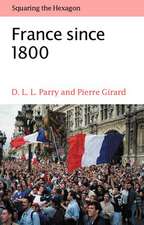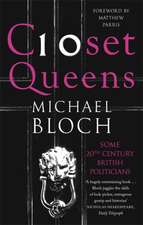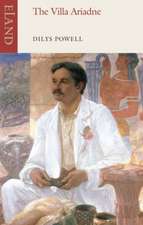Emotional Cities: Debates on Urban Change in Berlin and Cairo, 1860-1910: Emotions in History
Autor Joseph Ben Prestelen Limba Engleză Hardback – 14 sep 2017
Din seria Emotions in History
- 30%
 Preț: 516.46 lei
Preț: 516.46 lei - 18%
 Preț: 168.59 lei
Preț: 168.59 lei - 26%
 Preț: 558.10 lei
Preț: 558.10 lei - 25%
 Preț: 494.04 lei
Preț: 494.04 lei - 26%
 Preț: 517.04 lei
Preț: 517.04 lei - 25%
 Preț: 515.93 lei
Preț: 515.93 lei - 5%
 Preț: 724.75 lei
Preț: 724.75 lei - 5%
 Preț: 235.06 lei
Preț: 235.06 lei - 30%
 Preț: 583.32 lei
Preț: 583.32 lei - 19%
 Preț: 191.94 lei
Preț: 191.94 lei - 30%
 Preț: 501.52 lei
Preț: 501.52 lei - 10%
 Preț: 229.45 lei
Preț: 229.45 lei - 26%
 Preț: 599.41 lei
Preț: 599.41 lei - 16%
 Preț: 582.53 lei
Preț: 582.53 lei - 25%
 Preț: 598.76 lei
Preț: 598.76 lei - 25%
 Preț: 515.46 lei
Preț: 515.46 lei
Preț: 587.18 lei
Preț vechi: 841.88 lei
-30% Nou
Puncte Express: 881
Preț estimativ în valută:
112.37€ • 122.02$ • 94.39£
112.37€ • 122.02$ • 94.39£
Carte tipărită la comandă
Livrare economică 12-18 aprilie
Preluare comenzi: 021 569.72.76
Specificații
ISBN-13: 9780198797562
ISBN-10: 0198797567
Pagini: 244
Ilustrații: 10 black and white figures/illustrations
Dimensiuni: 160 x 240 x 21 mm
Greutate: 0.55 kg
Editura: OUP OXFORD
Colecția OUP Oxford
Seria Emotions in History
Locul publicării:Oxford, United Kingdom
ISBN-10: 0198797567
Pagini: 244
Ilustrații: 10 black and white figures/illustrations
Dimensiuni: 160 x 240 x 21 mm
Greutate: 0.55 kg
Editura: OUP OXFORD
Colecția OUP Oxford
Seria Emotions in History
Locul publicării:Oxford, United Kingdom
Recenzii
Joseph Prestel is one of the first scholars to deploy the approaches of the recent emotional turn in historiography for the benefit of modern urban history... In a scholarly field in which so much of our knowledge still harks back to the history of a handful of Western metropolises, one can only hope that the approach Prestel proposes in this book inspires many to follow.
Prestel has written an innovative work that complements the classic studies of nineteenth-century urbanization, like those by Frederick Engels and Charles Booth which laid out in meticulous detail the terrible conditions of housing, sanitation, and diet endured by the urban poor. In joining the two cities he challenges urban historians and perhaps even city-dwellers to divest themselves of their myopic focus on their own cities as unique and on European cities, in general, as defining the global norm.
In this study of Berlin and Cairo, Joseph Ben Prestel offers an approach to comparative urban history that avoids normative Eurocentric assumptions about urbanization and modernity. Rather than examining the cities themselves, he instead focuses on the emotional experiences of those who lived in cities... Theoretically informed but accessibly written, this work will prove as useful to the advanced undergraduate student as for the specialized researcher
Providing an outstanding theoretical framework, [this book] can be seen as a piece of pioneer work in recent cultural history concerning the combination of urbanization and history of emotions ... Based on a broad range of sources and literature from various disciplines, the study represents a transdisciplinary work par excellence.
Joseph Ben Prestel demonstrates that foregrounding emotions eschews stagist models of comparison (such as 'Cairo in 1900 was as modernised as Berlin in 1870'). An emotions approach thus globalises one of the last bastions of non-globalised history -- urban history. This is an excellent book with a forceful narrative and scintillating stories drawn from prodigious primary research in Arabic, German, French, and English.
This is a highly interesting project, promising to fill a number of gaps in existing scholarship through its dual focus on urban history and the history of emotions. It is conceptually fresh and innovative, well researched, and elegantly written.
Prestel has written an innovative work that complements the classic studies of nineteenth-century urbanization, like those by Frederick Engels and Charles Booth which laid out in meticulous detail the terrible conditions of housing, sanitation, and diet endured by the urban poor. In joining the two cities he challenges urban historians and perhaps even city-dwellers to divest themselves of their myopic focus on their own cities as unique and on European cities, in general, as defining the global norm.
In this study of Berlin and Cairo, Joseph Ben Prestel offers an approach to comparative urban history that avoids normative Eurocentric assumptions about urbanization and modernity. Rather than examining the cities themselves, he instead focuses on the emotional experiences of those who lived in cities... Theoretically informed but accessibly written, this work will prove as useful to the advanced undergraduate student as for the specialized researcher
Providing an outstanding theoretical framework, [this book] can be seen as a piece of pioneer work in recent cultural history concerning the combination of urbanization and history of emotions ... Based on a broad range of sources and literature from various disciplines, the study represents a transdisciplinary work par excellence.
Joseph Ben Prestel demonstrates that foregrounding emotions eschews stagist models of comparison (such as 'Cairo in 1900 was as modernised as Berlin in 1870'). An emotions approach thus globalises one of the last bastions of non-globalised history -- urban history. This is an excellent book with a forceful narrative and scintillating stories drawn from prodigious primary research in Arabic, German, French, and English.
This is a highly interesting project, promising to fill a number of gaps in existing scholarship through its dual focus on urban history and the history of emotions. It is conceptually fresh and innovative, well researched, and elegantly written.
Notă biografică
Joseph Ben Prestel is a historian of Europe and the Middle East at Freie Universität Berlin. He received his PhD in history from FU Berlin in 2015. Before joining FU's history department, he held a position at the research center for the History of Emotions at the Max Planck Institute for Human Development. He has also held fellowships at Cambridge University and the American University in Cairo.
